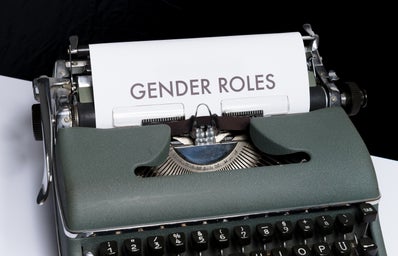All too often, the explicit value of studying social science is brought into question. To critics, research in these fields is cited as a waste of the material and immaterial: not only are you wasting precious tuition money on a “fake” discipline, you will never land a job, and you are sacrificing the prime years of your life to teach yourself useless concepts. Doctors save lives. Engineers construct and create. That computer science kid crouched over their $3,000 laptop in Norlin could go work for the NSA. You’ll be thankful for their diligent studying when they catch terrorists-to-be on Facebook.
What, exactly, can you do with a social science degree? You can teach — maybe! Or, depending on your focus, you might actually have a place in the commercial world. Your political science degree could always land you some kushy, six-figure and low-pressure job through an unpaid internship on Capitol Hill. Your business degree could have you in a cubicle. Your economics degree might give you a leg up on that application to be a secretary for an actuary. Your philosophy degree, could, uh…
So the scroll of strawman arguments unfurls. Put simply: social sciences do have value, both academically and commercially. Regardless of what jobs are perceived to be achievable for certain students and studies, it is passion in a field that cultivates actual success. The availability of social science programs in post-secondary education is also intrinsically linked to interest and career diversity; as much as your engineer roommate loves to boast about the totally-guaranteed paychecks they’ll be handed right out of college, those checks wouldn’t be available if too many recent college graduates were vying for them. There seems to be some collective understanding that social sciences are relevant in life, then. They are all valued in their own respective right; post-graduate studies in these fields are taken seriously, and those who work on them are noted to be intellectual and inspired scholars.
All of them are valued, save one field: women and gender studies, or WGST. Colloquially defined as “academic feminism,” it is the scapegoat of social science. It is the ultimate no-job major. It purportedly lacks any true functionality. It exists because society is far-too progressive and far-too forgiving. Students line up in lecture halls to be droned to about the radical dogma of crazies like Judith Butler or Simone deBeauvoir. At least the other social sciences read “real” philosophy — society always needs more first year analysis of social contract theory.
Ironically, gender studies is able to account for its mockery. Adrienne Rich, a prolific poet and steadfast feminist, wrote in 1973 that: “women’s studies are [considered] a ‘fad,’” and that professors and teachers in the field are perceived both “unscholarly” and “unprofessional.” There is a simple answer for this trend of belittlement — gender studies is one of the only social sciences built by and for women, studied primarily by women and queer folk, and critiques the non-purposeful ways that a modern society reinforces sexist oppression through everyday actions.
For centuries, women have been removed from academic spaces. Those who are so humbly given permission to participate have their contributions ignored or stolen by their male peers. In the status quo, even, STEM degree programs are predominantly taught to and by men. The ostracized woman, told to stay out of un-womanly affairs, steps proudly into the wet cement of her own lane and channels her own “affairs” into academic analysis and philosophy. This, too, is wholly unacceptable. She pens essays on her understanding of gender and is told that her theories are grounded only in the anecdotal. Her thought on sexual expression is merely a reflection of her own hysterical rage. Told she cannot participate in a man’s real or theoretical science, she creates her own, and is cast out even further.
As the most “appropriate” field of study for a woman, it is only natural that it is a joke. Feminism as a socioeconomic movement itself is, by-and-large, a joke. Thinly veiled behind concern for employability and a lack of applicable skills, gender studies is perpetually invalidated as a space for only the most laughable, most extreme, most un-womanly women. Queer folk with gender identities often beyond the comprehension of society’s supposedly most-prepared-for-the-real-world people are graced with even more indignity and snide comments. These individuals are not welcomed in STEM, and while they are welcomed by WGST programs, they are dismissed and trivialized by others. Women and queer people, then, are best taken as conduits for academic oppression. It is most acceptable for this group to enter into the STEM programs, or enter into the “more serious” social sciences, and to sit and take whatever is thrown at them. It is preferred that they become jaded, rather than empowered.
Gender studies is what paved the way for women’s suffrage. Gender studies is what backed sexual liberation in the 60s, what brought upon #MeToo in the 2010s. In this way, gender studies is symbolic of women’s achievements in other academic fields. Gender studies is Rosalind Franklin’s discovery of the double-helix, ridiculed by her co-workers while her ideas were stolen for the betterment of human understanding. Gender studies is Henrietta Leavitt’s standard-candle, her catalogues upon catalogues of stars utilized by Hubble but her name faded off the pages of astronomical history.
Women are a “joke” for wanting to celebrate and understand themselves. Women are ridiculed for wanting to actualize their experiences with words and philosophy. Ultimately, though, women are laughed at because women are laughed at. Gender studies should be taken seriously, but it can’t be until women themselves are taken seriously.


